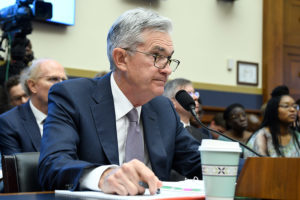
In the Financial Times, Richard Bernstein examines the possibility that the “Fed put” might be over for good. He writes:
Investors have been acting as though the central bank is ready, willing and able to supply the easy money protection of the Fed put. The growing notion that inflation has peaked and the central bank will soon “pivot” to lower interest rates has fuelled a rally so far during 2023 in the riskiest, most speculative assets. Meme stocks are up more than 25 per cent, bitcoin is up more than 40 per cent and the Ark Innovation Fund that invests in speculative tech prospects is up more than 30 per cent. The best-performing US sectors year-to-date are communications, consumer discretionary and technology.
If the Fed put is a thing of the past, history suggests traditional defensive sectors tend to outperform when there is a combination similar to today’s tighter monetary policy and decelerating corporate profits. Needs outweigh desires and sectors such as consumer staples, healthcare and utilities typically lead.
Longer term investors should ignore themes that we have derisively called “cute wiener dogs in the metaverse” to focus on the woeful US underinvestment in real productive assets. Potential returns seem attractive from longer term opportunities in public and private sector infrastructure and manufacturing capacity. Few investors seem aware that analysts’ bottom-up forecasts show the energy sector could grow earnings more than twice as fast as the technology sector over the next five years.
It is certainly understandable that financial market observers want the Fed to reverse course and write another put option. Much of the financial sector’s business has been built on generous and cheap money.
However, the entire credibility of central banking is on the line and the Fed put should end. No one wants a recession, but allowing inflation to reignite could damage the US economy for a decade or more and, in the current volatile political environment, could even destabilise the governments of the US and other nations.
Read more here.



